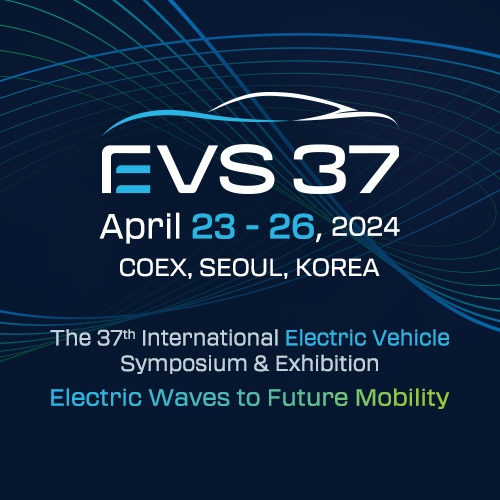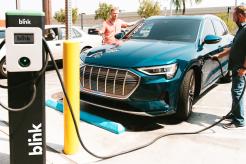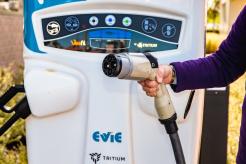Electric vehicle charging stations seem to be popping up everywhere – for a good reason. According to the IEA’s Global EV Outlook 2022 Report, the number of publicly available charging stations tripled between 2018 and 2021. Business owners, property managers, and parking lot operators are increasingly aware of the many incentives of becoming a site host for EV charging infrastructure. Still, there are quite a few considerations that prospective site hosts should consider.
From site selection to repairs and maintenance, we will cover the top 13 considerations for site hosts getting started in EV charging.
1. Site Selection For EV Charging Stations
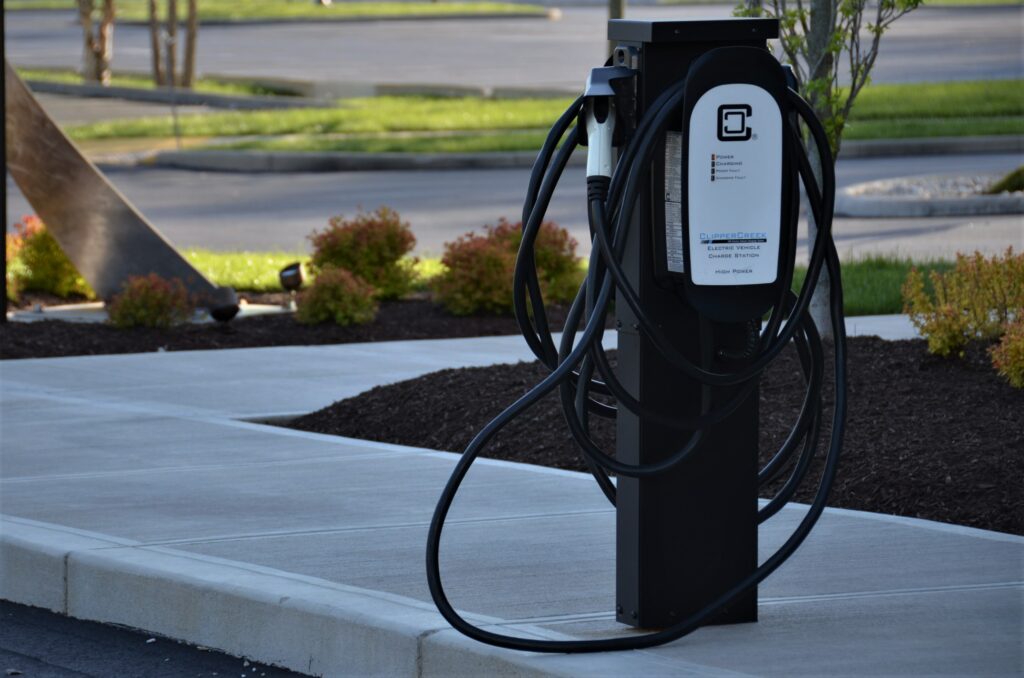 Photo by Roger Starnes Sr on Unsplash.
Photo by Roger Starnes Sr on Unsplash.
Before becoming a site host, consider whether your space is suitable for EV infrastructure.
Ensure you have a convenient location for EV drivers and enough space to accommodate your EV chargers. You also need to consider EV charger types, power requirements, and how many EV chargers you will need to meet demand.
A study by the Annals of GIS identifies ten primary criteria for determining ideal EV charging site locations:
- Population density
- Local income rates
- Slope
- Land values
- Proximity to:
- Shopping malls
- Roads
- Transportion stations
- Petrol stations
- Parks
- Green areas
2. Local Fire and Building Codes + Other Permits and Approvals
 Photo by Scott Graham on Unsplash
Photo by Scott Graham on Unsplash
EV charging infrastructure must comply with all local fire and building codes. Codes include things like having the proper permits and electrical inspections. Failure to comply with local regulations can result in hefty fines or even getting your EV charging station getting shut down.
In addition to local fire and building codes, you’ll need all the other necessary permits and approvals before you can start operating your EV charging station. Permits can include zoning approval, utility approval, and any others required by your municipality.
3. Accessibility Laws

Photo by Jakub Pabis on Unsplash
EV charging infrastructure must also comply with all accessibility laws, such as the Americans with Disabilities Act (ADA). You must ensure your EV chargers are accessible to people with disabilities and that your EV charging station includes proper signage. According to the U.S. Access Board, EV charging spaces for people using mobility devices must be 11 feet wide and 20 feet long, with an adjoining access aisle at least 5 feet wide. Finally, you’ll need to ensure the EV charging station does not eliminate space for accessible parking spots.
4. Visibility and Lighting Conditions

Photo by Keagan Henman on Unsplash
Your EV charging station should be visible to EV drivers and have adequate lighting for safety. Visibility becomes especially important if you install your EV charging station in a parking garage or lot. You don’t want EV drivers to have difficulty finding your chargers, and you want to make sure the area around the EV chargers is well-lit for safety.
5. EV Charger Type Selection

Infographic via NeoCharge
When choosing which chargers you plan to install at your EV charging site, select EV chargers that are compatible with the types of electric vehicles you’ll be servicing. For example, if you want to service Tesla vehicles, you’ll need to use a Tesla-specific EV charger. You’ll also need to consider whether your EV chargers will service commercial and passenger cars. The three main types of EV chargers are Level I, Level II, and Level III (or DC Fast) chargers, corresponding to each type’s voltage level and personal or commercial use feasibility. If you want to service commercial vehicles, you’ll need EV chargers with higher power output and more space for parking.
6. Power Requirements and Power Source Options For EV Charging Infrastructure

Photo by Jubbar J. on Unsplash
EV chargers require a lot of power, so you’ll need the proper electrical service to support them, including having enough power capacity and the right type of electrical service (single phase, three phase, etc.). You must also factor in voltage drop and power factor when sizing your EV charging station. Lastly, you’ll need to consider how close your electrical service room will be to your charging location.
Many power sources are available for EV chargers, including grid-tied, battery-backed, and off-grid. Choose the right power source option for your EV charging station based on your needs. For example, if you want your chargers capable of operating during a power outage, you’ll need to choose a battery-backed EV charger. You can also consider solar panels to offset electrical costs and go even greener.
7. Hardware and Software Selection for EV Charging Stations
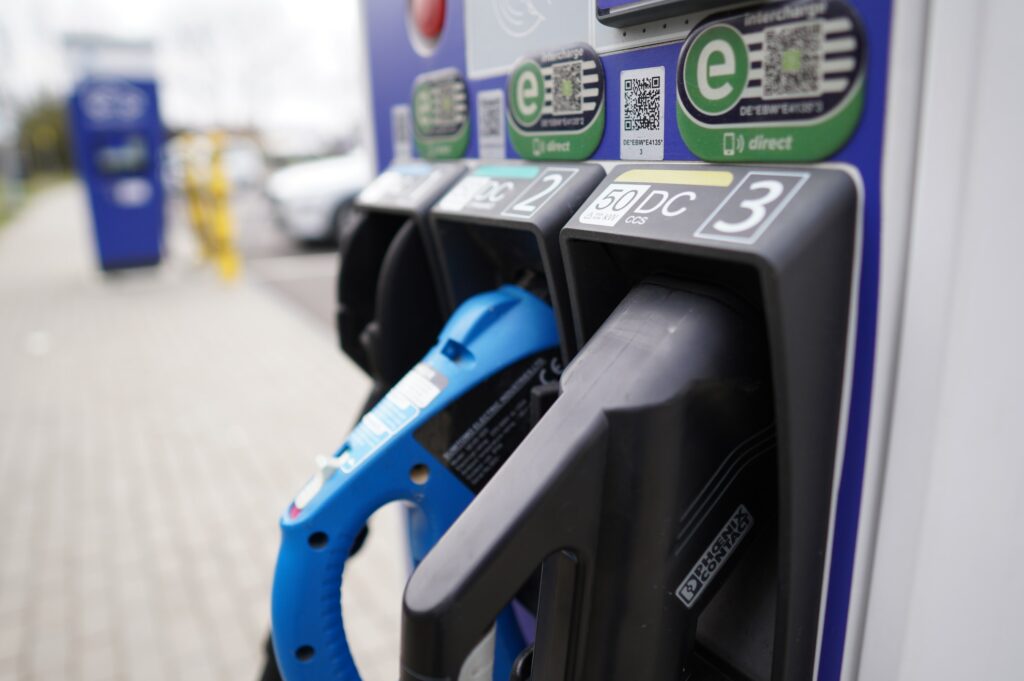
Photo by Sophie Jonas on Unsplash
Hardware and software selection is a critical consideration. You’ll need EVSE networking and software to operate your EV charging station, including load balancing, remote monitoring, firmware updates, customer billing, and reporting. There are many different EVSE networking and software options on the market, including Blink Charging, Flash Parking, BTC Power, Siemens, EV Connect, and Powerflex Systems. As a site host, research will help you choose the right one for your EV charging station.
8. EV Charging Infrastructure Costs
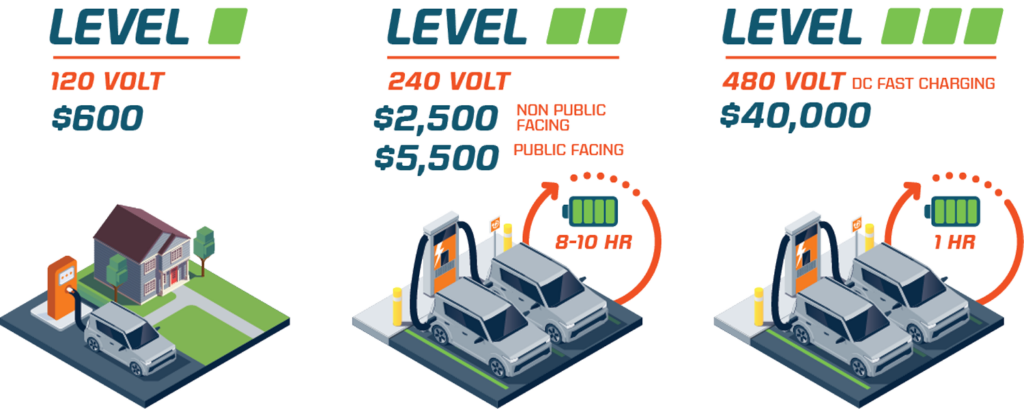
Infographic via Future Energy
Various costs are associated with setting up and operating EV charging infrastructure. You need to factor in the cost of the EV chargers themselves, as well as the cost of installation, permits, inspections, ongoing maintenance, and commercial electricity rates. Be sure to do your research and budget accordingly.
9. Funding for EV Charging Infrastructure

Photo by Green Chameleon on Unsplash
Thankfully, funding opportunities are available for EV charging infrastructure, including state and federal incentives, grants, and tax credits. The 2021 Bipartisan Infrastructure Law earmarked $7.5 billion for electric vehicle infrastructure. Research all the funding options available to you to offset as many costs as possible.
10. EV Charger Installation Options

Photo by Ümit Yıldırım on Unsplash
Installing EV chargers can be complex and expensive. Choose a qualified and experienced installer who can properly install your EV chargers in compliance with all local codes. Additionally, when budgeting for your EV charging station, you need to factor in the cost of materials, labor, permits, and inspections.
When choosing an EV charger installer, request multiple bids and choose the provider with the best certifications and experience. Leading companies in the space include Vehya, EVgo, ABB, EVBox, and Webasto.
11. EV Charger Monitoring and Management

Photo by Ibrahim Boran on Unsplash
Once your EV charging infrastructure is up and running, consistent monitoring of EV charger usage, power consumption, and EV charger availability is essential. You must also monitor the EV charging infrastructure for potential problems, including power outages, equipment failures, and suspicious activity.
Several exceptional Charge Point Management Software options are on the market, including Chargelab, AMPECO, Schneider Electric, and Chargepoint.
12. Maintenance and Repair of EV Charging Infrastructure

Photo by Emmanuel Ikwuegbu on Unsplash
EV charging infrastructure requires regular maintenance and repairs, such as firmware updates, equipment calibration, and general cleaning and upkeep. EV charging station manufacturers typically offer maintenance and repair services.
13. Promotion and Marketing for EV Charging Stations

Photo by Possessed Photography on Unsplash
Finally, you’ll want to consider your plan for spreading the word about your EV chargers. Your business, parking lot, multi-unit dwelling, or charging site of any kind will become increasingly appealing to visitors, tenants, and customers – if they’re aware that you have EV chargers, of course! Take advantage of this publicity opportunity by pursuing LEED points, seeking press mentions, and building a social media strategy.
These are a few considerations when becoming an electric vehicle charging site host. Your final consideration: when will you get started?

